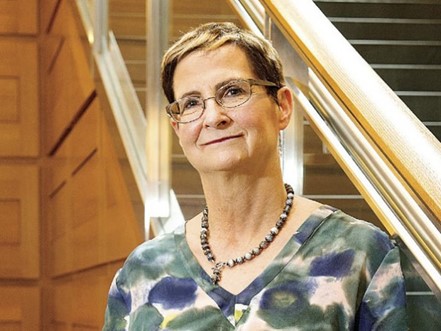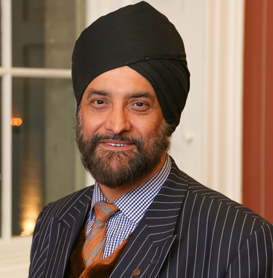McLaughlin College invites the York University community to come and listen to interesting speakers as they share their knowledge on a variety of topics during the popular Lunch Talk Series. The long-running series continues this year in a virtual format via Zoom.
Students who attend six or more Lunch Talks throughout the year will receive a Certificate of Participation, while those who attend 10 or more will receive a Certificate of Honour.
There are four events scheduled for October:
Distant States are as Responsible for the Refugees as the Neighbours – Oct. 6, 12:30 to 1:30 p.m.
Presented by Boldizsar Nagy, associate professor at the Central European University, this event explores the argument that countries next to the home countries of the refugees have the duty to take up the refugees, and more distant states may refuse their admission. This talk will show that this is a morally false position that cannot be justified, so neither the “first country of asylum” nor the “safe third country” rule is morally tenable. Naturally, it is not denied that practical reasons may militate in favour of protecting refugees close to their home, but no normative claim can be based on them.
Nagy teaches international law and refugee law. He studied law and later philosphy at the Eötvös Loránd University (ELTE) in Budapest, and has acted as a practising international lawyer on several occasions, including the Gabčikovo-Nagymaros Project Case at the International Court of Justice. For more on his background, visit this page.
Register for the event here.
Fast-track Removals from the U.S.: Violations of Due Process and Non-Refoulement Obligations at the Southern Border – Oct. 7, 12:30 to 1:30 p.m.
In recent years, the majority of those deported from the United States each year are sent back to their home countries through summary procedures. Bypassing the immigration court system, these summary removals are improperly punitive, deny due process and violate fundamental non-refoulement obligations under U.S. and international law. This talk, presented by Sabrineh Ardalan, a clinical professor of law, will will provide an overview of recent policy changes that have led to an increase in fast-track removals, the legal framework for these removals and case studies that highlight the impact of these summary procedures on asylum seekers.
Ardalan is the the director of the Harvard Immigration and Refugee Clinical Program. At the clinic, Ardalan supervises and trains law students working on applications for asylum and other humanitarian protections, as well as appellate litigation and policy advocacy. She has authored briefs submitted to the Board of Immigration Appeals as well as to the federal district courts, circuit courts of appeal and the U.S. Supreme Court on cutting-edge issues in U.S. asylum law.
Register for the event here.
The New EU Migration and Asylum Pact: Daylight at the End of the Tunnel or a Dead End? – Oct. 14, 12:30 to 1:30 p.m.
On Sept. 23, 2020, the European Commission proposed the New Pact on Migration and Asylum, which is supposed to reform the existing European Union (EU) migration and asylum framework. However, the future of the Migration Pact is far from certain – considering the current stage of negotiations among EU member states, it is questionable whether the legislative proposals put forward by the European Commission will ever be adopted and, if so, what their final versions will look like. The aim of this talk, presented by Iris Goldner Lang, is to address the challenges the increasing number of migrants and refugees and the COVID-19 outbreak have had on the EU migration and asylum policies, and to discuss whether the Migration Pact can respond to these challenges by ensuring efficient and human rights-compliant practices. Special attention will be drawn to the most important novelties proposed by the Migration Pact, the challenges of their implementation and the importance of solidarity among EU member states.
Lang is a Jean Monnet Professor of EU Law at the University of Zagreb. She is the holder of the UNESCO Chair on Free Movement of Persons, Migration and Inter-Cultural Dialogue and an academic co-ordinator of the Jean Monnet Centre of Excellence “EU’s Global Leadership in the Rule of Law.” She has held visiting positions at University College London and at Harvard Law School, where she was a John Harvey Gregory Visiting Professor of Law and World Organization and a Fulbright Visiting Researcher.
Register for the event here.
The 2021 Canadian Election: The Election No One Wanted – Oct. 18, 12:30 to 2 p.m.
When Prime Minister Justin Trudeau called a snap federal election in the midst of the pandemic in the hopes of winning a majority, the five-week summer election campaign ended with virtually the same results as the last election in 2019. The outcome was another Liberal minority government, which prompted commentators to say, “All this for that?” There were many disappointments during this “pandemic election,” including the fact that it was the most expensive election in Canadian history and it had the lowest turnout on record.
McLaughlin College has assembled a panel of experts to offer their analysis of the 2021 federal election results and to share their thoughts and reflections on what this general election will mean for Canada, both in the short- and long-term.
Moderator: James C. Simeon is head of McLaughlin College and associate professor in the School of Public Policy and Administration (SPPA), York University. He is a former director of SPPA. His principal areas of research include public international law, especially, international refugee law, and public policy and administration.
Panellists:
Sylvia Bashevkin is a professor in the Department of Political Science at the University of Toronto. Some of her scholarly distinctions include fellowship in the Royal Society of Canada and the Canadian Political Science Association Prize in International Relations. Title of the talk: Do unnecessary elections invite trouble for governing parties?
Robert Drummond is University Professor Emeritus, Department of Politics and School of Public Policy and Administration, York University. His key areas of expertise are politics and government, public policy, Ontario politics, public politics in an aging society, political parties and elections, pensions and retirement policy, and labour policy.
Denis Pilon is an associate professor in the Department of Politics at York University. He is the author of Wrestling with Democracy: Voting Systems as Politics in the Twentieth Century West and The Politics of Voting: Reforming Canada’s Electoral System.
Frederick Fletcher is University Professor Emeritus, Communication Studies and Politics, at York University. His research and teaching have focused on the media and politics, with special attention to elections and electoral democracy. His recent research deals with coverage of Indigenous issues in mainstream newspapers and the challenges faced by traditional media in the digital era. Title of the talk: Campaign 2021: News media narratives and images
Register for the event here.


















